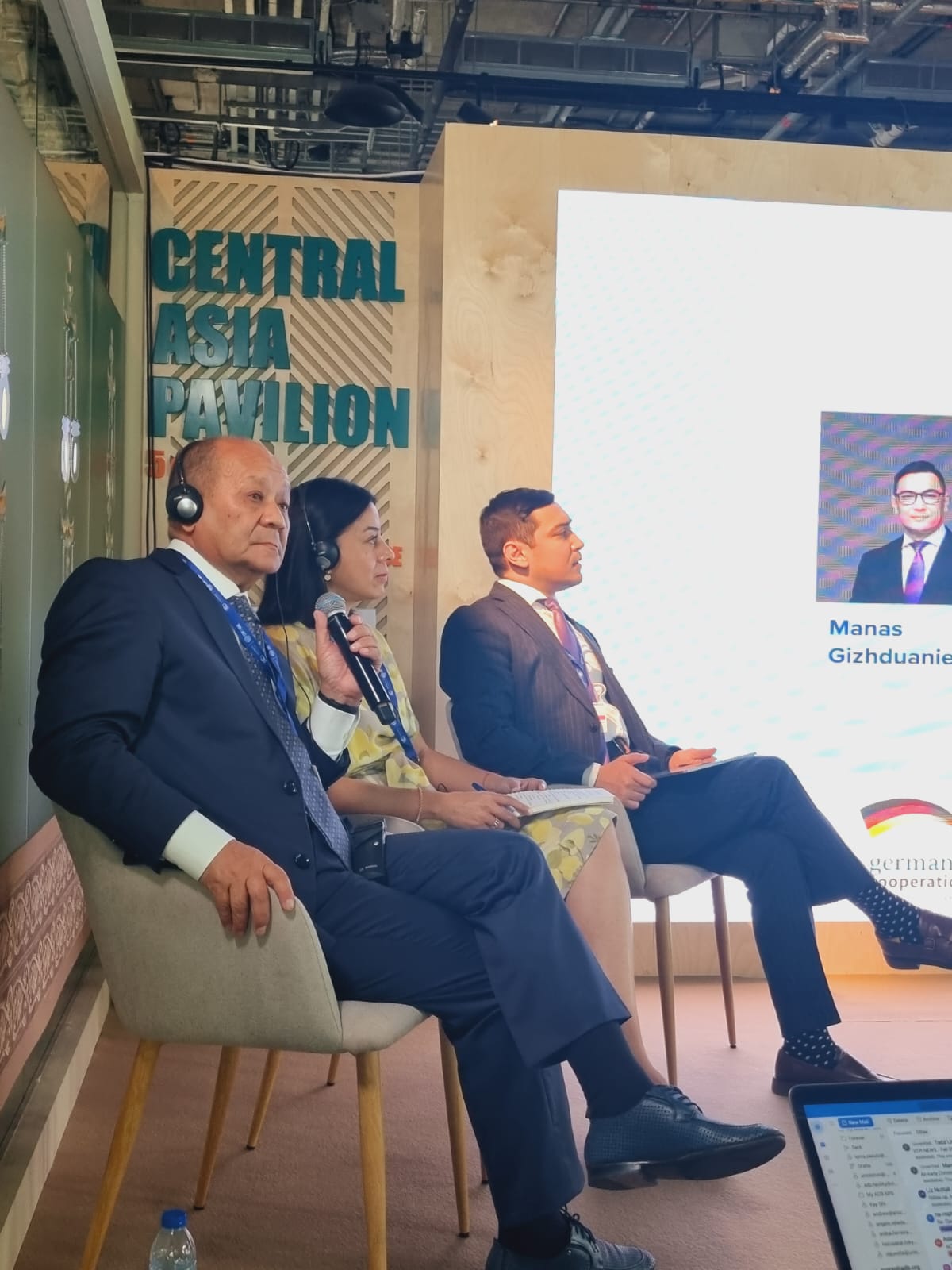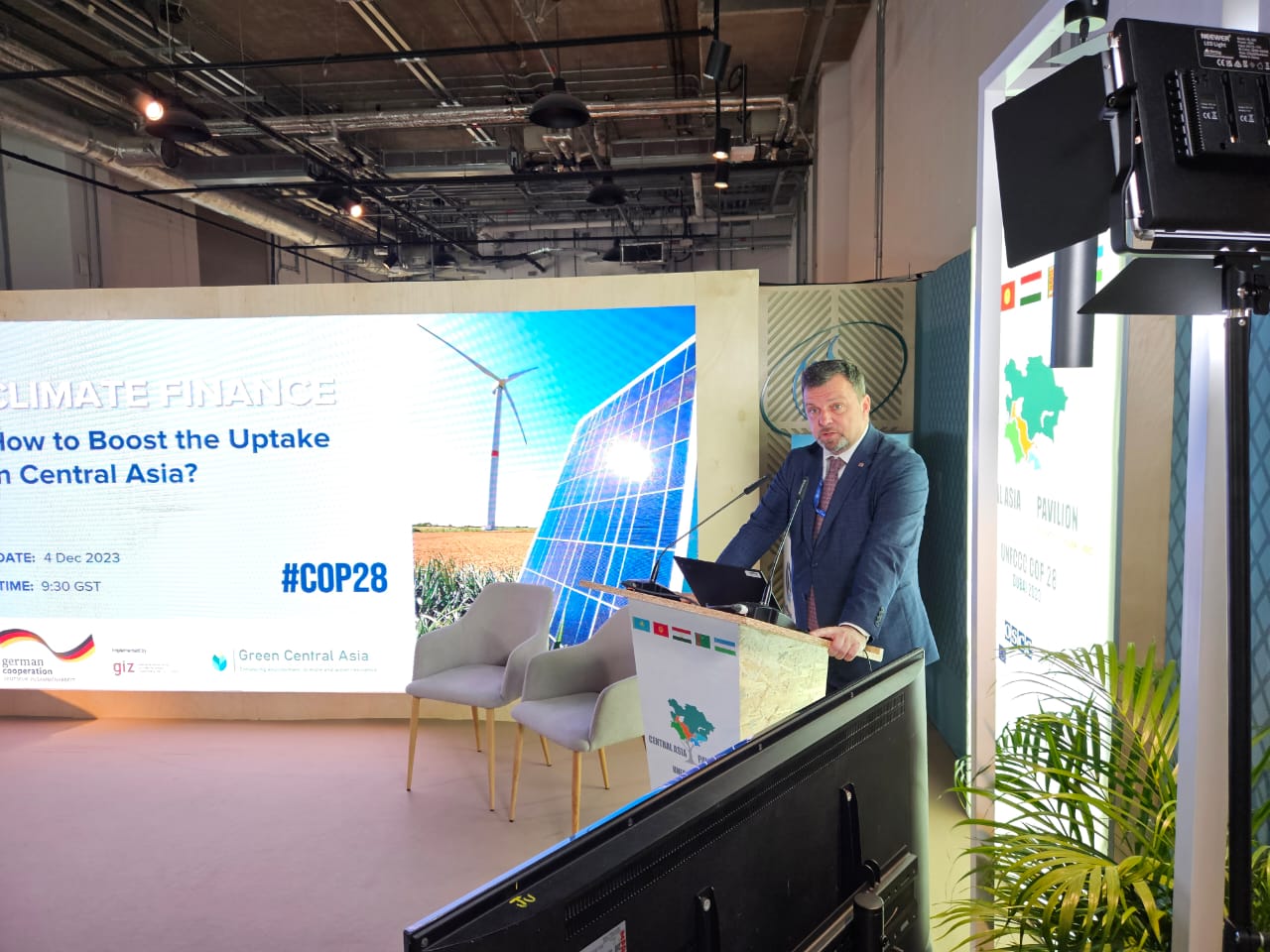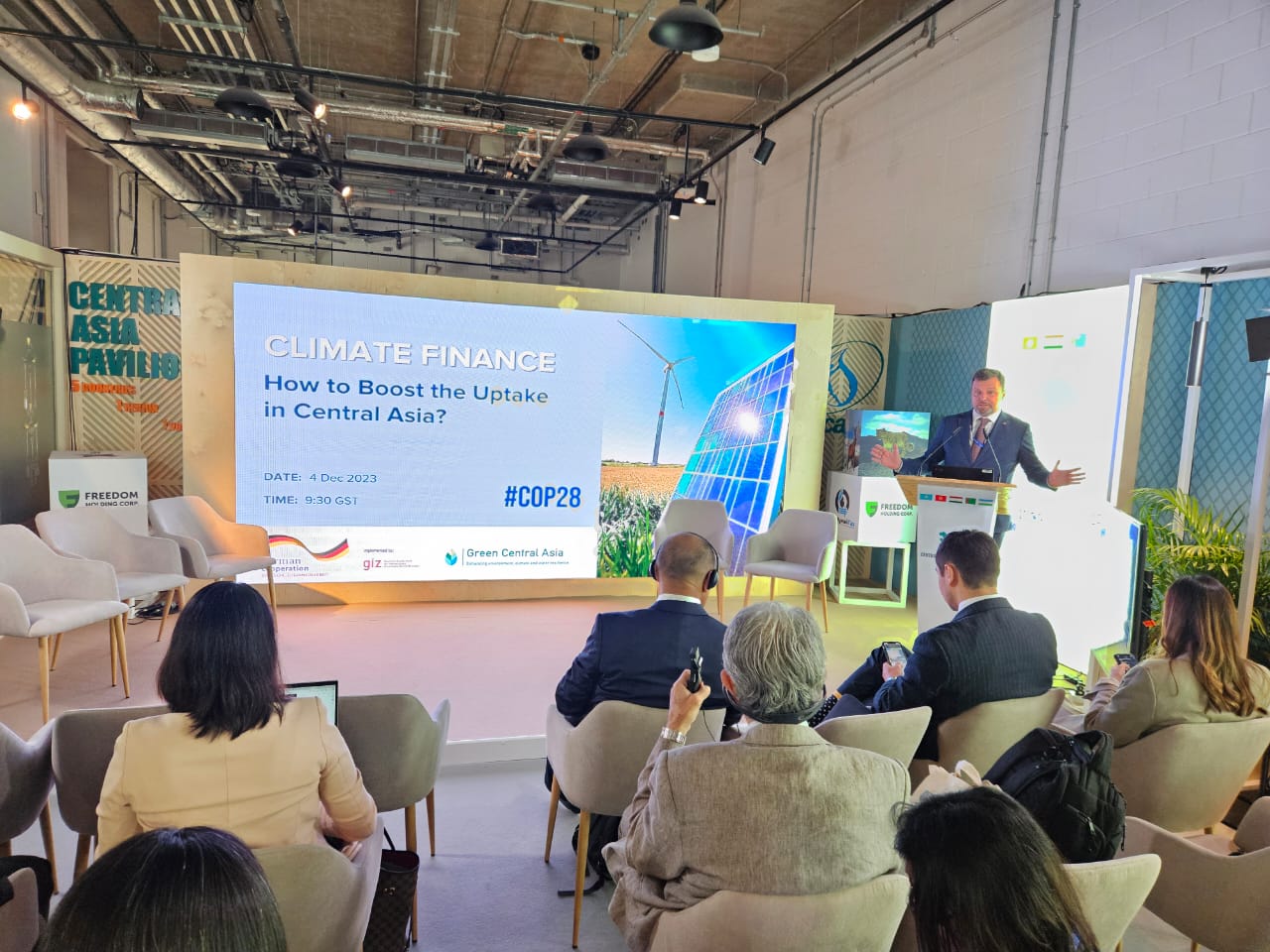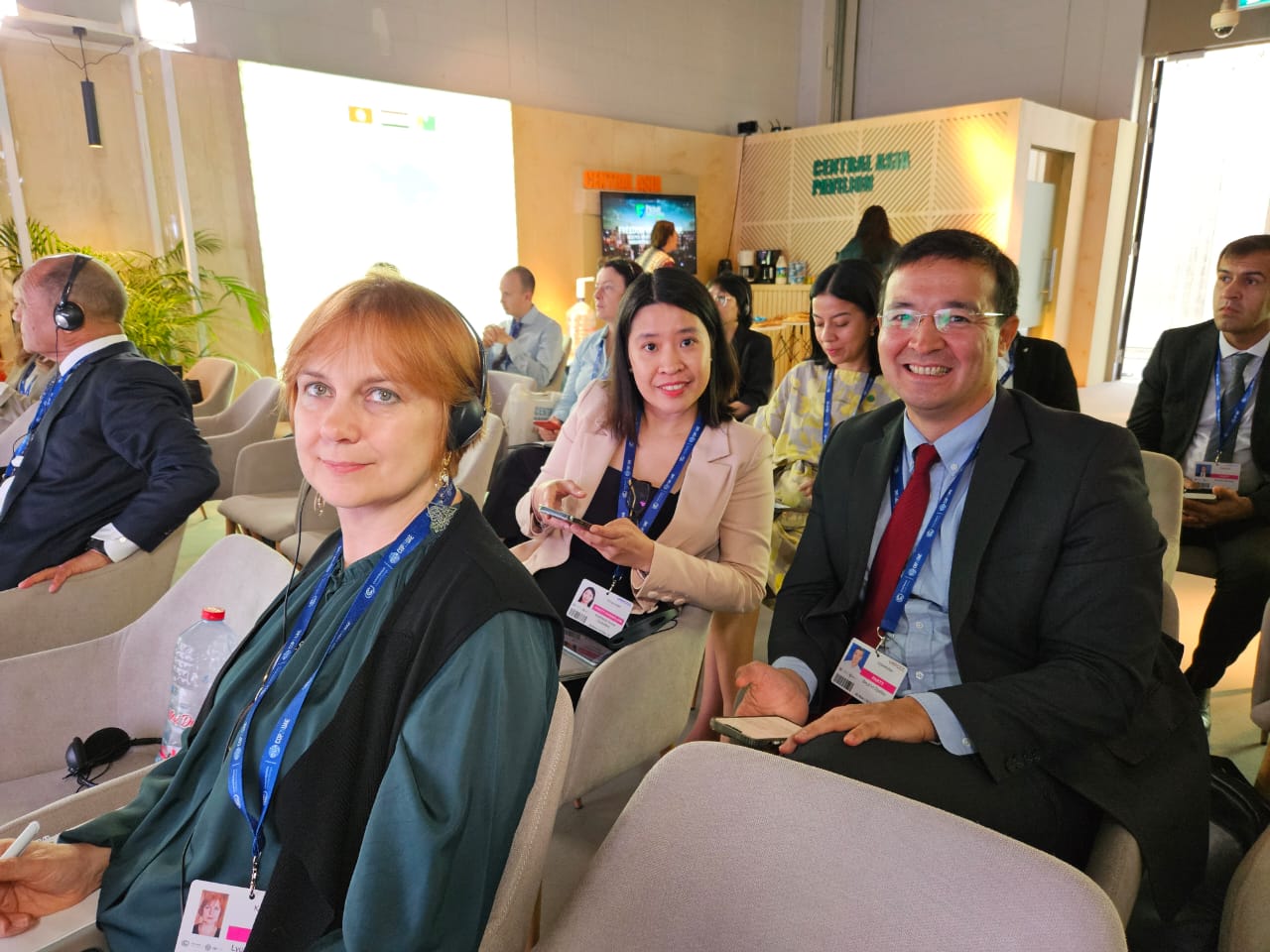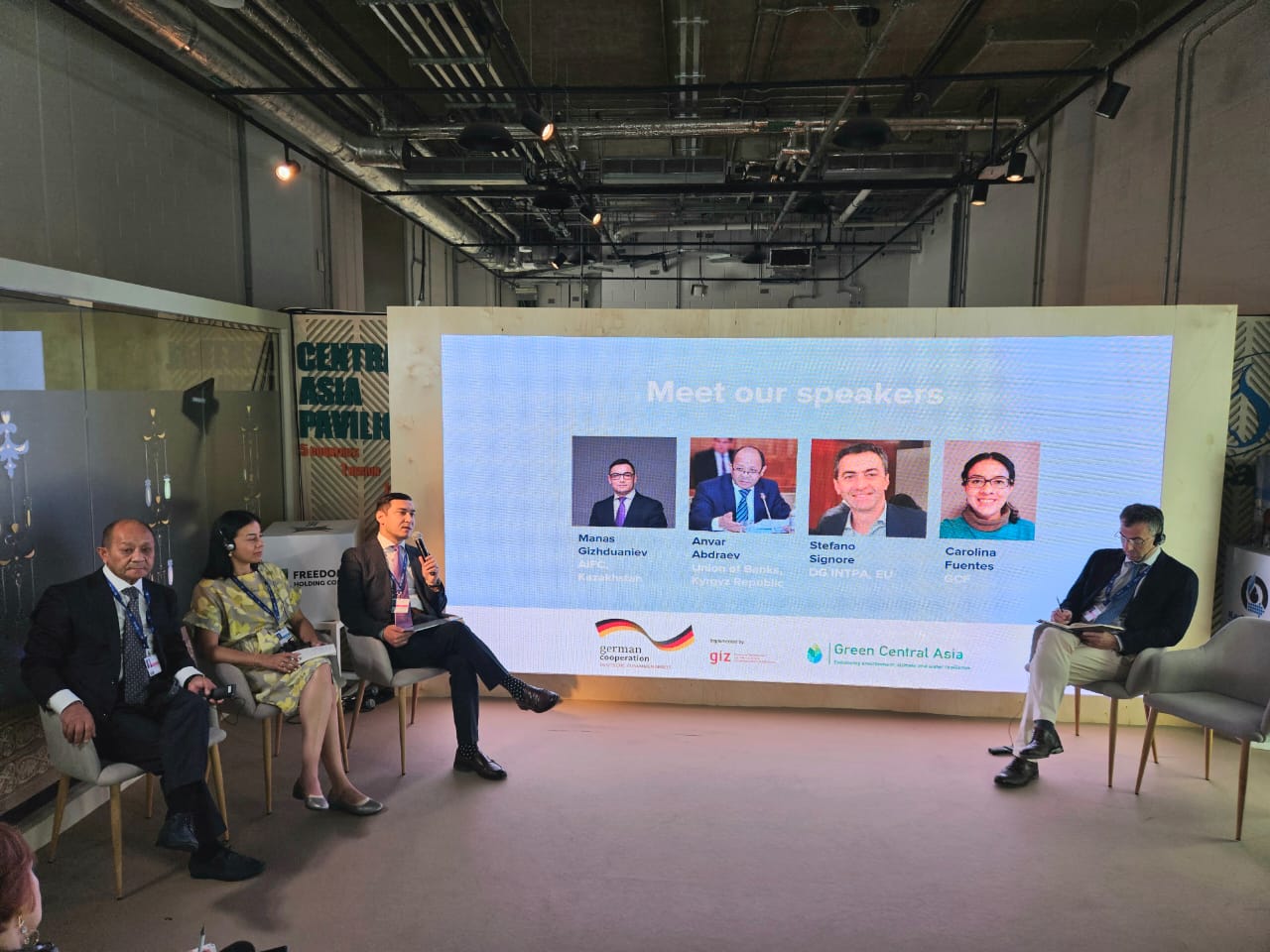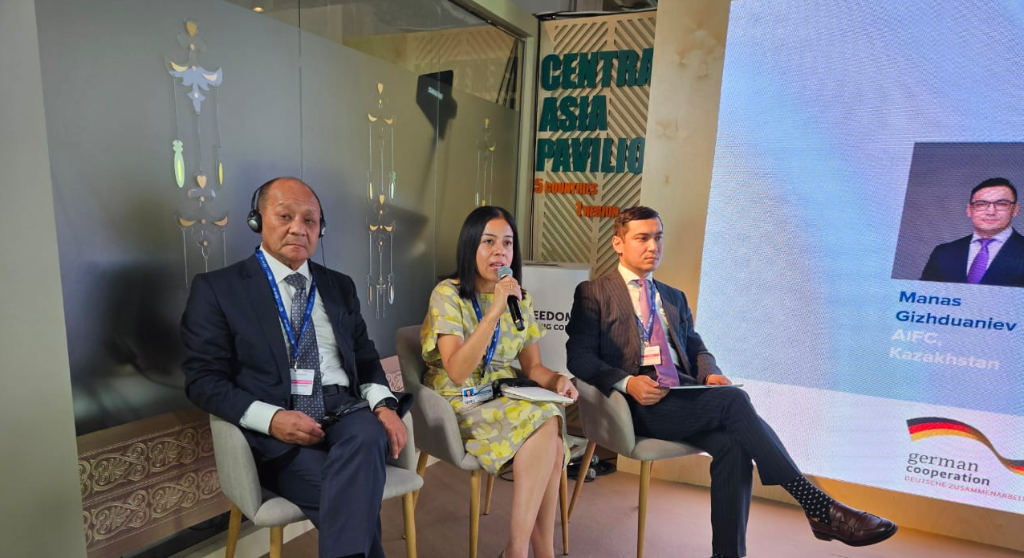
Dubai – UAE – The countries of the Central Asian region presented quite a lot of interesting project ideas to achieve carbon neutrality and announced their ambitions to reduce greenhouse gas emissions at the current 28th Conference of the Parties to the UN Framework Convention on Climate Change. However, significant climate investments are needed to achieve them adequately.
How to increase climate finance in the region, how to remove financial barriers and create an enabling environment was discussed at the side event “Climate Finance – How to Boost the Uptake in Central Asia?” in the Central Asia Pavilion of the UNFCCC COP28 on December 4, 2023.
Reportedly, climate finance can become a key tool for the transition to a low-carbon economy and sustainable societies. Climate finance includes a variety of financial instruments that facilitate investment in climate-friendly projects. However, there are a number of challenges in the placement of green finance that hinder technological innovation.
The representatives of the finance sector and industries, policymakers and development partners discussed the following issues:
- Status quo of climate finance in Central Asian countries
- Entry points and avenues for decarbonization of Central Asian economies
- Availability and accessibility of innovative finance instruments for investments
- Major obstacles preventing investments in climate-friendly innovations and possible solutions
- Innovations that are at the same time climate-friendly and economically viable
- Creation of an enabling environment that makes investments economically viable and nationally and internationally attractive
Participants were also provided with an overview of international sources of funding and their financing strategies.
The participants noted that among the main problems of climate finance in Central Asia are the lack of knowledge, the need for legislative initiatives, and the quality of pipeline projects. For example, the adoption of a taxonomy law in Kazakhstan has sparked a boom in green projects. At the same time, not all pipeline projects meet the basic criteria of high-quality projects and therefore are not supported by investors.
The side event is organized in the frame of the German Green Central Asia Initiative (GCA) together with the Regional Environmental Centre for Central Asia (CAREC).
GCA Initiative is a contribution to the Team Europe Initiative "Water, Energy, Climate Change". On behalf of the German government, Deutsche Gesellschaft für Internationale Zusammenarbeit (GIZ) GmbH collaborates with its partners in Central Asia in the areas of Water Management, Green Economy, Land Management & Biodiversity, Renewable Energy and Energy Efficiency.
Video recording is available at https://www.youtube.com/watch?v=nTamMUlA6yc
More about the COP28 CA Pavilion - https://www.carececo.org/main/activity/mettings/cop28/



